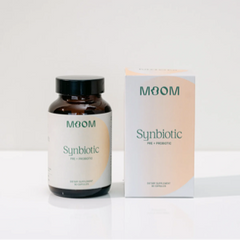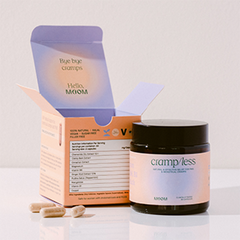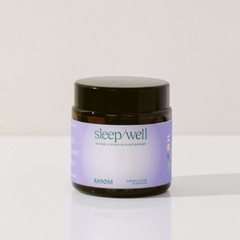Insomnia is a common sleep disorder that affects millions of people worldwide; however, studies have shown that women are 40% more likely to experience insomnia than men! Insomnia can have a significant impact on a women's health and well-being, and it's important for women in particular to take care of their sleep health. Our experts at Moom Health dive deeper into why this is the case:
One of the reasons women are more prone to insomnia is due to hormonal changes. Hormonal fluctuations can cause disturbances in the sleep-wake cycle, making it harder to fall asleep and stay asleep. Women may experience these hormonal changes during pregnancy, menopause, and menstrual cycles.
Another reason women are more likely to experience insomnia is due to lifestyle factors. Women often juggle multiple responsibilities, including work, family, and household chores, leaving little time for self-care. Stress and anxiety associated with these responsibilities can interfere with sleep and lead to insomnia.
It's important for women to prioritise their sleep health to improve their overall well-being. Adequate sleep is essential for maintaining physical and mental health, and poor sleep can lead to a host of health problems, including obesity, diabetes, heart disease, and depression.
There are several steps women can take to improve their sleep health. Establishing a regular sleep schedule is essential. Going to bed and waking up at the same time every day helps regulate the body's sleep-wake cycle. Creating a relaxing sleep environment can also help. This includes keeping the bedroom cool, dark, and quiet.
In addition, women can use natural sleep aids to help promote sleep. Ingredients like passionflower, valerian root, and glutamine have been clinically studied to help support sleep. Supplementing with other ingredients like magnesium and ashwagandha can also help lower cortisol levels (hormones linked to stress) and calm the mind and body before sleeping.
In conclusion, women are more likely to experience insomnia than men, and it's important for women to take care of their sleep health. Hormonal changes and lifestyle factors can contribute to insomnia, but there are steps women can take to improve their sleep quality. Establishing a regular sleep schedule, creating a relaxing sleep environment, and using natural sleep aids can all help promote better sleep!











Leave a comment
This site is protected by hCaptcha and the hCaptcha Privacy Policy and Terms of Service apply.